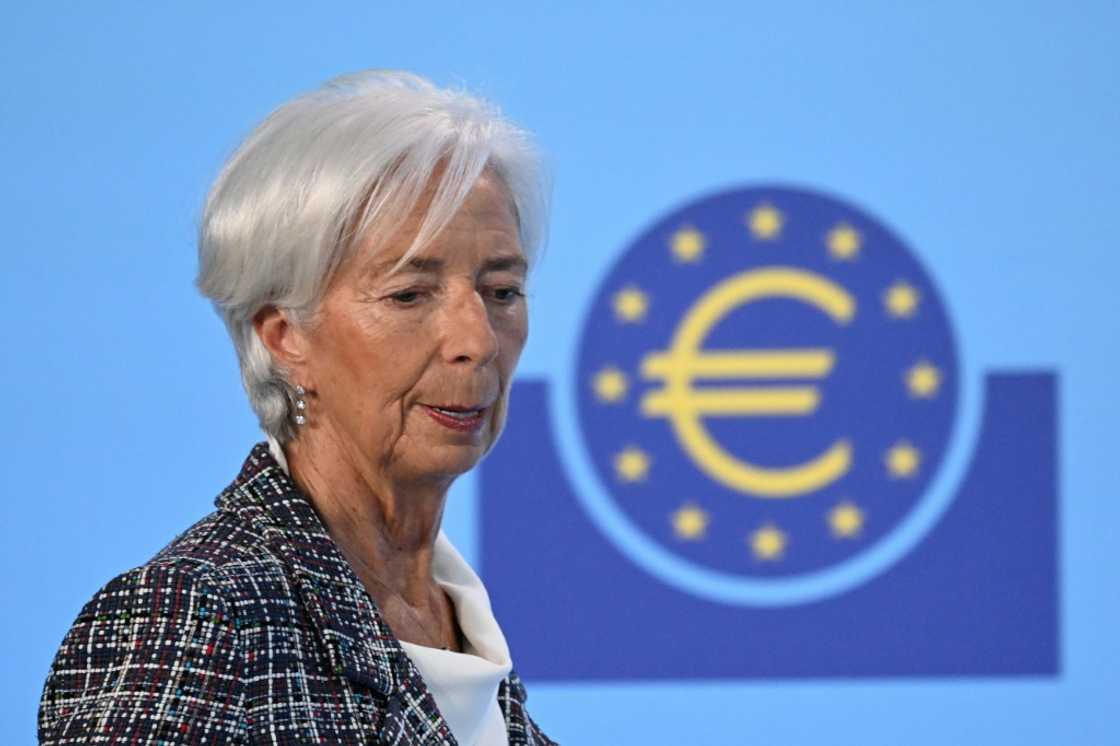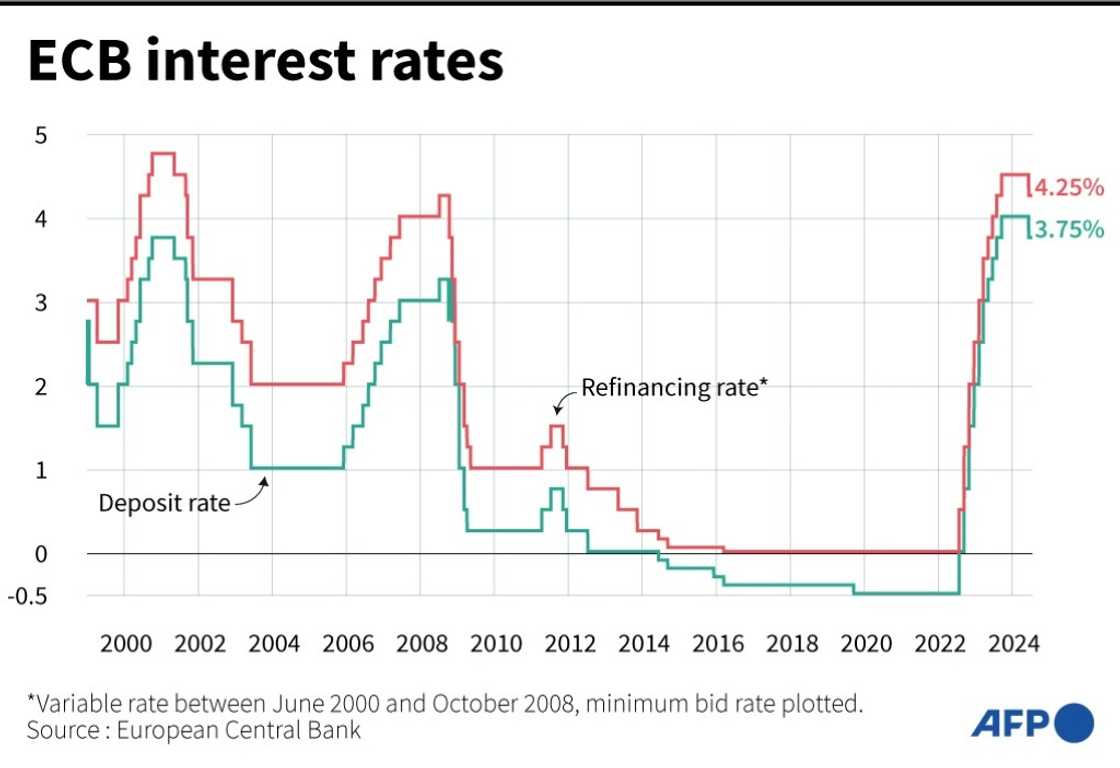With inflation slowing, ECB to cut rates again

Source: AFP
Don't miss out! Get your daily dose of sports news straight to your phone. Join YEN's Sports News channel on WhatsApp now!
With inflation slowing and the economic outlook darkening, the European Central Bank is expected to cut interest rates again Thursday but is unlikely to give much away about its next moves.
After raising rates at a record pace from mid-2022 to tackle surging consumer prices, the ECB has begun to ease the pressure as inflation rates have fallen.
The Frankfurt-based central bank made its first cut in June, reducing the key deposit rate to 3.75 percent from a record high of four percent.
The ECB's governing council kept borrowing costs on hold in July but is expected to make another quarter-point cut on Thursday, providing further relief to businesses and households.
It will be only the second rate reduction since 2019 from the ECB, which sets monetary policy for the 20 countries that use the euro.
"Virtually all recent ECB speakers have confirmed that they would like to lower rates," said Berenberg bank economist Holger Schmieding.
Policymakers' confidence in moving ahead with cuts has been bolstered by signs that inflation, which has been bumpy over the past year, is now on a more sustained downward trajectory.
Eurozone inflation fell to its lowest level in more than three years in August, according to official data.
Consumer price rises slowed to 2.2 percent compared to the same month last year, down from 2.6 percent in July, leaving the figure just a whisker off the ECB's target.
Inflation rates had peaked at 10.6 percent in October 2022 after Russia's invasion of Ukraine and post-pandemic supply chain woes sent food and energy costs soaring.
Economic gloom
A lacklustre performance in some parts of the eurozone has also fuelled calls for more cuts to take pressure off the single currency area.
While signs in the first half of the year were positive, recent indicators have pointed to a deteriorating outlook.
The eurozone's largest economy, Germany, shrank unexpectedly in the second quarter, adding to indications that a hoped-for rebound will fail to materialise this year.
Meanwhile, wage growth, a key area of concern for the ECB, slowed markedly in the second quarter, easing fears that high labour costs could spark a resurgence in inflation.
Rate-setters will also be armed with updates to the central bank's own inflation and growth forecasts to help guide their decision.
The US Federal Reserve looks poised to start cutting rates at its meeting next week, following recent weak data and market turmoil.
This will boost confidence among ECB policymakers about forging ahead with their own cuts.
What's next?

Source: AFP
Investors will be closely watching ECB chief Christine Lagarde's post-meeting press conference for clues about the path ahead.
But analysts say the ECB is unlikely to let much slip about its next move, as the central bank has in recent times insisted it will not foreshadow future decisions, and will rely solely on incoming data.
Policymakers have reason to be cautious, with signs that inflation in some areas remains stubborn.
Closely watched core inflation, which strips out volatile energy and food prices, remained elevated at 2.8 percent in August, while services sector inflation accelerated.
The muddled picture means that rate cut decisions beyond September could be "more complicated and controversial than currently priced in by financial markets," said economist Carsten Brzeski from ING bank.
"As a result, we don't expect any new forward guidance" at Thursday's meeting, he added.
New feature: Сheck out news that is picked for YOU ➡️ click on “Recommended for you” and enjoy!
Source: AFP




